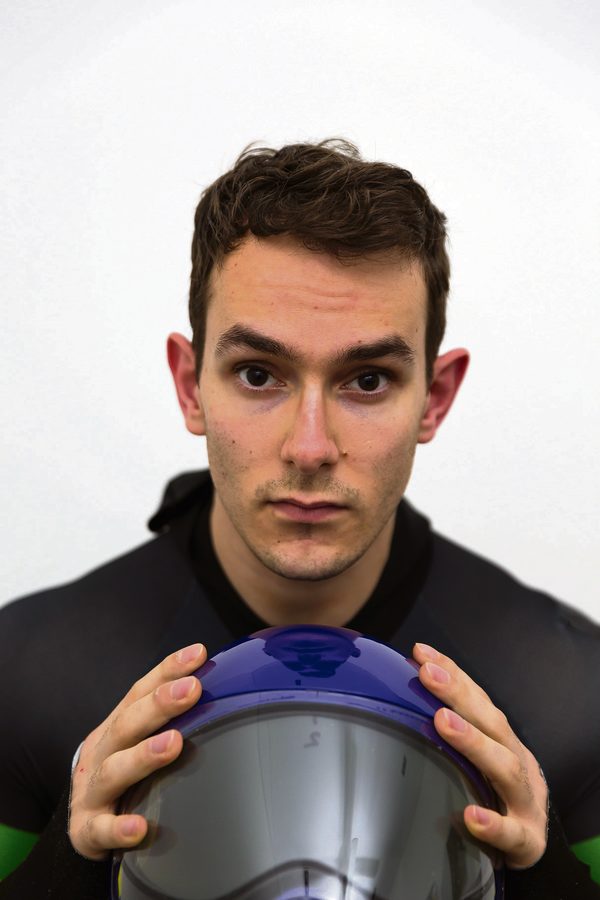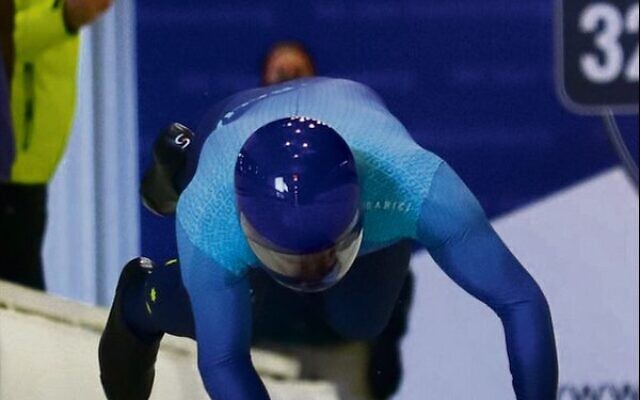Berger aims for World Cup debut in third season
“The mistakes are painful, but when it goes really well, it kind of feels like you’re floating, like you are on cloud nine, and you come out of the sled feeling ecstatic.”
In his childhood, Sydney’s Gabriel Berger was fascinated when watching the breathtakingly fast individual sliding sport of skeleton for the first time on television, during the 2006 Torino Winter Olympics.
“I thought it was really cool,” the 29-year-old Moriah College alumnus recalled, “but it wasn’t until I was doing my second degree at the University of Sydney that I knew I really wanted to do this sport, and see if I have potential.”
Through a housemate connection, he met two members of Australia’s women’s bobsleigh squad, including fellow Jewish athlete Ashleigh Werner, who has since become an NRLW player for the Broncos.
“Ashleigh was super helpful, and suggested I register for a sliding sports national testing camp, which I did, and passed.”

As Australia has no sliding sport facilities, Berger was advised to travel to an overseas track in the 2019 northern hemisphere winter to see if skeleton was really for him, so he attended a training camp at Whistler.
Despite feeling “grateful just to be alive” upon completing his first ride, Berger persisted, kept training and loved the learning journey. He said, “I was getting a lot better at it, and I really liked that everything in the sport relied on me.
“Because of the high speed involved, and the G-force pressure in the turns, it’s almost like you can’t think too much in skeleton – you can only feel, try to control your reactions, and stay relaxed.
“The mistakes are painful, but when it goes really well, it kind of feels like you’re floating, like you are on cloud nine, and you come out of the sled feeling ecstatic.”
A combination of the start of the pandemic and injury put Berger’s plans on hold for a year, but he then “dived into the deep end” – with no coach and almost no money – staying with fellow Aussie athletes when competing in the 2021-22 North America Cup.
As skeleton is “a sport of gaining experience”, Berger was unfazed by not doing particularly well in his first racing season.
He saved up and bought a new sled, and competed in the 2022-23 Europe Cup season, while accessing a coach provided by the International Bobsleigh and Skeleton Federation (IBSF) to athletes from nations lacking a home track.
His results gradually improved, and in a race in Innsbruck this February, he placed 23rd out of 29, reaching a speed of 118km/h.
“I had to learn a lot of new tracks, but I was happier with my results, and I became more confident and controlled, and trusted myself more.”
In a fortnight, Berger will attend an Australian skeleton training camp in Calgary that will focus on push starts, before competing in more international races from November.
“And hopefully I’ll be making my IBSF men’s skeleton World Cup round debut, in January in Lillehammer, which is so exciting.”
With little funding available to most Australian athletes who compete in Winter Olympic sports, Berger relies on savings, and donations, to continue to chase his dreams.
To make a tax-deductible donation to support Berger in his upcoming overseas season, visit asf.org.au/projects/gabriel-berger-skeleton-development


comments